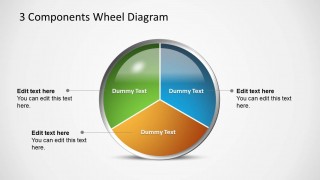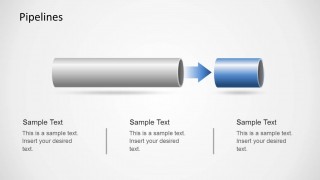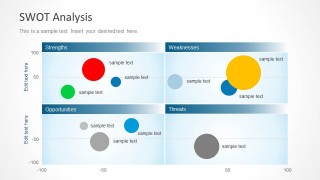Copy and paste the code below into your blog post or website
Copy URL
Embed into WordPress (learn more)
Comments
comments powered by DisqusPresentation Slides & Transcript
Presentation Slides & Transcript
© Gunda W. C. – 2017CIVICS DIRECTORY FOR FORM TWO
SUBJECT MATTERS TO COVER© Gunda W. C. – 2017Promotion of life skills Social problem solving techniques Government of Tanzania Government Constitution Local government Central government Tanganyika/Zanzibar union Union affairs in the central government Democracy Types of democracy Democratic elections Gender The concept of gender
1. PROMOTION OF LIFE SKILLS© Gunda W. C. – 2017SOCIAL PROBLEM SOLVING TECHNIQUES Steps of problem solving and decision making: 1. Identify the problem 2. Problem Analysis and clarification 3. Reviewing alternative solutions 4. Choosing a solution 5. Implementing a solution 6. Evaluation The purpose of problem solving is to get the best possible solution
2. GOVERNMENT OF TANZANIA © Gunda W. C. – 2017GOVERNMENT Government - Is a group of people within a community or nation who have the power and authority of performing administrative functions like planning, making decisions or implementing policies Responsibilities of the President - Head of State, Head of Government Affairs, Commander in Chief of Armed Forces, Head of Public Service Sovereignty - Freedom from foreign influence and domination External sources of government revenue - Non-payable: Grants from donor countries Payable: IMF loan, loans from central government/Word Bank, Domestic loans
Continue . . . © Gunda W. C. – 2017Importance of taxes in Tanzania - Chief source of government income, used to pay various government employees, helps government to make good decisions, facility wealth redistribution, helps to estimate economic state of the country List of ministries under the Union Government of Tanzania - Security and Defense, Home Affairs, Finance, Science Technology and Higher Education Aristocracy/Oligarchy - A type of dictatorship where a few persons form and control the government Dictatorship - A type of government where a single person or small group of people control all aspects of the countryUnicameral - A type of government with one house of parliament Public Transport - Shared passenger transportation service which is available for use by the general public Morocco is a constitutional monarchy
Continue . . .© Gunda W. C. – 2017CONSTITUTION Constitution - A body of rules and principles by which a country is governed According to the constitution the parliament consists of the president and national assembly One of the features of a typical constitution is that it spells out the composition and functions of the government One of the advantages of an unwritten constitution is that it is flexible
Continue . . .© Gunda W. C. – 2017LOCAL GOVERNMENT Structure of local government in Tanzania - Village government - Village assembly, village council, committees (finance and economic planning, defense and security, social services and self reliance, VEO Ward government - Ward development committee, departments of agriculture/education/finance/health/livestock/social welfare, WEO District local government - District council, district executive officer (DED), district committees, departments, councilors Urban - Town council, municipal council, city council
Continue . . .© Gunda W. C. – 2017Mandatory functions of local governments in Tanzania - Provision of social services, maintenance of law and order, promotion of social and economic welfare and the wellbeing of people, collecting and proper utilization of taxes, making of bylaws, coordination of projects and plans, facilitate representative democracy Local Governments are important institutions for facilitating participatory democracy The proper officer in charge of District council is the District Executive Director The regional commissioner is appointed by the head of state and government
Continue . . .© Gunda W. C. – 2017CENTRAL GOVERNMENT Taxes - Taxes are fees/levies imposed by the government upon its people as a source of government revenue or income Direct Tax - Is paid by people employed by the government or private sector (income tax) Indirect Tax - Comes from import and export duties, fees, fines VAT (Value Added Tax) - Source of government revenues Major sources of national income in Tanzania - Taxes, rents, fees, tariffs, customs, borrowing, aid, sale of government assets, government activities (ex mining, fishing, industry, oil, agriculture) Bill - A proposal for a new law
Continue . . .© Gunda W. C. – 2017Judiciary - The organ of the government which interprets the law of the country The parliament should limit and control the powers and actions of the executive government branch The Parliament of Tanzania is unicameral The parliament is called legislature because it enacts laws The three branches of government are - Legislative, judicial, executive One of the functions of judiciary is to interpret laws
Continue . . .© Gunda W. C. – 2017TANGANYIKA/ZANZIBAR UNION What a United Republic means in Tanzania - It refers to the union between Zanzibar and Tanganyika under Julius Nyerere of Tanganyika and Abeid Amani Karume of Zanzibar in 1964 The union between Tanganyika and Zanzibar was influenced by their desires for security
Continue . . .© Gunda W. C. – 2017UNION AFFAIRS IN THE CENTRAL GOVERNMENT According to the constitution of Tanzania the union matters are - Statistics, higher education, research, defense, currency, constitution and governance, foreign affairs, police, declaration of state emergency, citizenship, migration, international trade and loans, income tax, court of appeals, registration of polities, NECTA Non union matters - Local government affairs, road maintenance and travel, agriculture/livestock/fishing, trade and small scale industries, prisons
3. DEMOCRACY© Gunda W. C. – 2017TYPES OF DEMOCRACY Democracy - A type of government where the people in power were chosen by the population through electionsRepresentative democracy - Involves few people who are elected to represent others in decision making discussions, they rule on behalf of others Parliamentary Democracy - Is a form of governance in which people, through their votes, elect members of the parliament Participatory Democracy - Is where people directly engage in decision making discussions
Continue . . .© Gunda W. C. – 2017Importance of democratic leadership - Promotes freedom of speech/religion/opinion, promotes accountability and transparency, promotes good governance, promotes rule of law, brings equality and justice, guarantee basic human rights, leads to development Role of the press in enhancing democracy - Allows opposition to have a voice, spreads information, bringing awareness to the people, advise the government, provide information to the people about the actions of the government
Continue . . .© Gunda W. C. – 2017DIFFERENTIATE DEMOCRATIC GOVERNMENT FROM NON-DEMOCRATIC GOVERNMENT
Continue . . .© Gunda W. C. – 2017Presidential and parliamentary democracy are forms of representative democracy In a democratic state all people are equal before the law Direct democracy is not applied in a big population
Continue . . .© Gunda W. C. – 2017DEMOCRATIC ELECTIONS Election - Formal decision making process by which a population chooses an individual to hold public office Polling Station - A place where voting takes place Advice on how to improve democracy - Free and fair elections, multipartism, transparency, accountability, rule of law, good governance, guarantee of basic human rights, political tolerance, integrity, civic competence Conditions for a free and fair election in a democracy - Free mass media, freedom of speech/expression, multipartism, competition between political parties/candidates, transparency in the election, corruption is limited, no outside influence from foreign governments
Continue . . .© Gunda W. C. – 2017Importance of elections in governance - Helps to get leaders, promotes democracy, promotes freedom of people, promotes equality and justice, encourages mass involvement in government activities Importance of multiparty democracy in Tanzania - To get competent leaders, allow for political competition, promote freedom of people, promote democracy, reduction of corruption The Union Electoral Commission is chaired by a judge of the court of Appeal The Tanzanian president must be 40 years old or above
4. GENDER© Gunda W. C. – 2017THE CONCEPT OF GENDER Gender Discrimination - Men or women are treated unfairly based on gender Gender Gap - The inequality that exists in job accessibility Gender Equality - Absence of inequality between men and women in all aspects Gender Equity - Equal treatment of men and women within a society Gender Mainstreaming - The strategies to achieve the goals of gender equality Women’s Empowerment - Refers to initiatives taken by the government or organizations to promote the role of women in society
Continue . . .© Gunda W. C. – 2017Problems facing our society’s efforts to empower women - Poor government support, cultural beliefs/practices/traditions, inadequate funds, lack of moral support, women do not receive adequate education, misappropriate of money, lack of sustainability in womens empowerment projects, dependency on donors and external financing, sexual abuse Strategies to promote gender equality - Change bad cultural practices like female genital mutilation/jando/unyago, change men’s perception of women’s roles, encourage women to work, mass education in the society, encourage equality in the family, make and enforce laws which protect women
Continue . . .© Gunda W. C. – 2017Women are considered to be among the underprivileged groups in society because - They are seen as being only capable of cooking and raising childrenProblems facing the governments’ efforts to empower women - Bad cultural beliefs, lack of education, inadequate funds, poor civic support, corruption, ineffective organized groups, peoples bad attitude towards women
Continue . . .© Gunda W. C. – 2017Efforts by the government to empower women in Tanzania - Establishment of NGOs (TGNP, TAMWA, TAWLA), making laws which protect women, involving women in decision making organs of government, promoting women to become involved in economic activities, affirmative action like free marks to become enrolled in the education system, conduction dialogues about women Causes of early marriage - Poverty, bride price, cultural beliefs or practices, illiteracy, adolescence brings biological and mental changes, threat of AIDS increases demand for younger girls
Continue . . .© Gunda W. C. – 2017The effects of inheritance of spouses - Transmission of STDs/HIV, loss of care for children who can become orphans, doesn’t consider the rights of the woman/she is forced, physical beating because of lack of respect, denies widows rights to inherit property Means of removing the gap between educated and uneducated people - Get rid of selfishness, students do the same work as other students (i.e. farming), be in contact with others (i.e. teaching adults), former students helping those without education to improve their lives Gender inequality in Africa is perpetuated by early marriage, bride price, and polygamy





